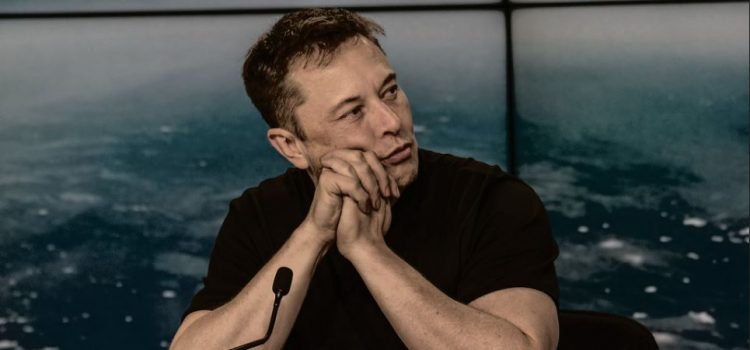

This article is an excerpt from the Shortform book guide to "Elon Musk" by Ashlee Vance. Shortform has the world's best summaries and analyses of books you should be reading.
Like this article? Sign up for a free trial here.
What’s Elon Musk’s psychological makeup? What clues do we have from his childhood that might explain his mental and emotional wiring?
Elon Musk’s intense drive and sweeping accomplishments come at a personal cost, a fact that he freely owns up to. The psychological challenges that Musk struggles with don’t determine every aspect of his personality, but they strongly color how other people view him.
Read more to understand Elon Musk’s psychology, according to biographer Walter Isaacson.
Elon Musk’s Psychology
Isaacson writes that Elon Musk’s psychology includes his difficulties in understanding other people’s emotions and his need for constant, intense stimulation as a means to ward off depression. Isaacson discusses the background that gave rise to this psychological makeup.
Because Musk was unusually smart as a child, he started school a year early, perhaps to his disadvantage. Musk had trouble making friends, in part due to his difficulty interpreting emotions and personal cues—a trait which Musk would later identify as a symptom of Asperger’s syndrome. Musk was regularly beaten at school. At home, both he and his mother endured Musk’s father’s relentless verbal assaults. Musk’s parents divorced when he was eight years old. And, because his mother worked long hours to support them, he and his siblings had to fend for themselves.
Isaacson hints that Musk’s emotional development was stunted in childhood as a result of his father’s abuse—to survive, Musk learned to shut down his feelings. This, in combination with his Asperger’s traits, taught Musk to interpret emotions differently than those without such harsh backgrounds. Musk’s closest friends describe his childlike joy when he’s enthused by new ideas or projects, as well as his deep well of feelings for his family and loved ones. However, Musk has trouble with the feelings of others, which he approaches from an intellectual standpoint. Isaacson writes that when Musk feels threatened, he still shuts his feelings down in a heartbeat while using shows of anger to deflect the threat.
(Shortform note: In Emotional Intelligence, psychologist Daniel Goleman identifies repressing emotions as a defense strategy that, while not necessarily negative, can blind a person to the very real physiological side effects of the emotions they’re hiding from themselves. Success guru Tony Robbins rejects the idea that repressing negative feelings is ever helpful. In Awaken the Giant Within, he argues that emotional avoidance and denial are disempowering because even negative feelings have value as warning signs that something needs to be addressed.)
While shadowing Musk to research his biography, Isaacson noted that Musk doesn’t handle success very well. Instead of relishing his achievements, Musk craves crisis and thrives when he’s fighting for survival. This need is so strong that Musk will manufacture crises for his companies, such as setting arbitrary demonstration deadlines for products that aren’t yet finished. These deadlines generate bursts of productivity, but they also force Musk and his teams to work round-the-clock shifts in a state of constant panic. Often, these periods of intense concentration are the only way for Musk to stay engaged and motivated without sliding into depression or risk-seeking behavior.
(Shortform note: In The Body Keeps the Score, psychiatrist Bessel van der Kolk offers a possible explanation for the behavior of people like Musk who seem to deliberately instigate their psychological stress. Van der Kolk explains that the body and mind can become addicted to any kind of stimulation, including the endorphins released in stressful situations. In this sense, some trauma survivors can become addicted to trauma itself. For these people, periods of calm cause physical withdrawal from the endorphins they depend on, so they’ll actively seek out stressful situations to relieve the discomfort of their anxiety and boredom.)
| Musk’s Positive Side Musk’s 2015 biography by Vance placed more of an emphasis on Musk’s strengths. These begin with his future-oriented mindset which puts the long-term good of the human race above any personal considerations. Following that is Musk’s conviction that businesses and industries can always be improved and that it’s his duty as a person of influence to encourage and facilitate that improvement. Musk backs up this conviction with a lifelong love of learning, improving his understanding of new, complex subjects on a regular basis. What Isaacson portrays as Musk’s compulsive need for chaos, Vance depicts as an ability to persevere through times of great stress, as well as a high tolerance for risk that gives him an edge over his business competitors. Vance says that what also makes Musk stand out is the way he integrates technical details with big-picture thinking so that while he’s solving individual problems he can keep his focus on his overall motivation. |
Exercise: Consider Your Opinions About Elon Musk
Elon Musk is a divisive figure, seen by some as a technological visionary and others as a wanton disruptor. Isaacson paints a complicated portrait that suggests both propositions might be true. Think about how your impressions of Musk might have either changed or been reinforced by the material shared here.
- Isaacson describes how Musk’s traumatic childhood shaped how he interacts with the world as well as his mission in life. How does Musk’s ambition to positively impact the future make you feel about his behavior?
- To what extent can you empathize with Musk?

———End of Preview———
Like what you just read? Read the rest of the world's best book summary and analysis of Ashlee Vance's "Elon Musk" at Shortform.
Here's what you'll find in our full Elon Musk summary:
- A biography of Elon Musk by renowned biographer Walter Isaacson
- Musk's traumatic South African childhood up until his Twitter takeover
- How Musk's Asperger's syndrome affected his childhood and relationships






